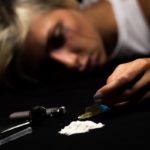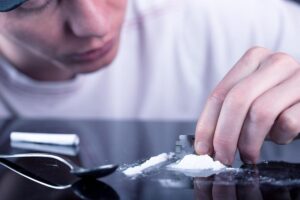
Do you feel like you’ve been on a roller coaster of emotions for days? Are you struggling with sleep, irritability, anxiety, brain fog or extreme cravings?
As your body heals from addiction and your brain chemistry returns to normal, you may experience emotional and psychological symptoms known as PAWS, or post-acute withdrawal syndrome (protracted withdrawal syndrome). Drugs linked to PAWS include alcohol, benzodiazepines, antidepressants, opioids and stimulants.
What are the Symptoms of PAWS?
The symptoms of PAWS can vary depending on the substance of abuse as well as the duration of active addiction. In general, most people won’t experience all of the symptoms (and especially all at once).
Symptoms can come and go as the body continues to heal. You can expect to feel progressively better the longer you abstain from your substance(s), but there may also be times when you feel depressed or anxious for no apparent reason. Hang in there; this is normal and brighter days are ahead. Learning to recognize the symptoms of PAWS is perhaps your best defense. This way, you can have a plan should these symptoms strike without warning.
Below are a few PAWS symptoms to keep on your radar:
- Anxiety
- Sleep difficulties
- Problems with short-term memory
- Persistent fatigue
- Difficulty concentrating and making decisions
- Alcohol or drug cravings
- Impaired executive control
- Anhedonia (the inability to feel pleasure from anything beyond use of the drug)
- Difficulty focusing on tasks
- Dysphoria or depression
- Irritability
- Unexplained physical complaints
- Reduced interest in sex
- Extreme drug cravings and obsessions
More Tips for Managing PAWS
- Be kind to your body, mind and spirit. This means making an effort to get plenty of rest, eat well, exercise, mediate and find time for relaxation and fun.
- Seek support: Lean on your addiction counselors and/or peers who can help keep you moving forward despite the symptoms of PAWS. And don’t be afraid to use humor to help you heal; laughter is a powerful remedy for the frustrating highs and lows of recovery.
- Stay patient and positive: It takes time to heal and for your mind and body to recover, so do your best to remain calm and relaxed and to focus on the world of possibilities ahead now that you’re free of drugs or alcohol.
Disease Education at 10 Acre Ranch
During our group therapy sessions, residents learn to recognize and manage post-acute symptoms, so they are not caught off-guard and are less prone to relapse. To learn more about our addiction program features, call today: 877-228-4679.




